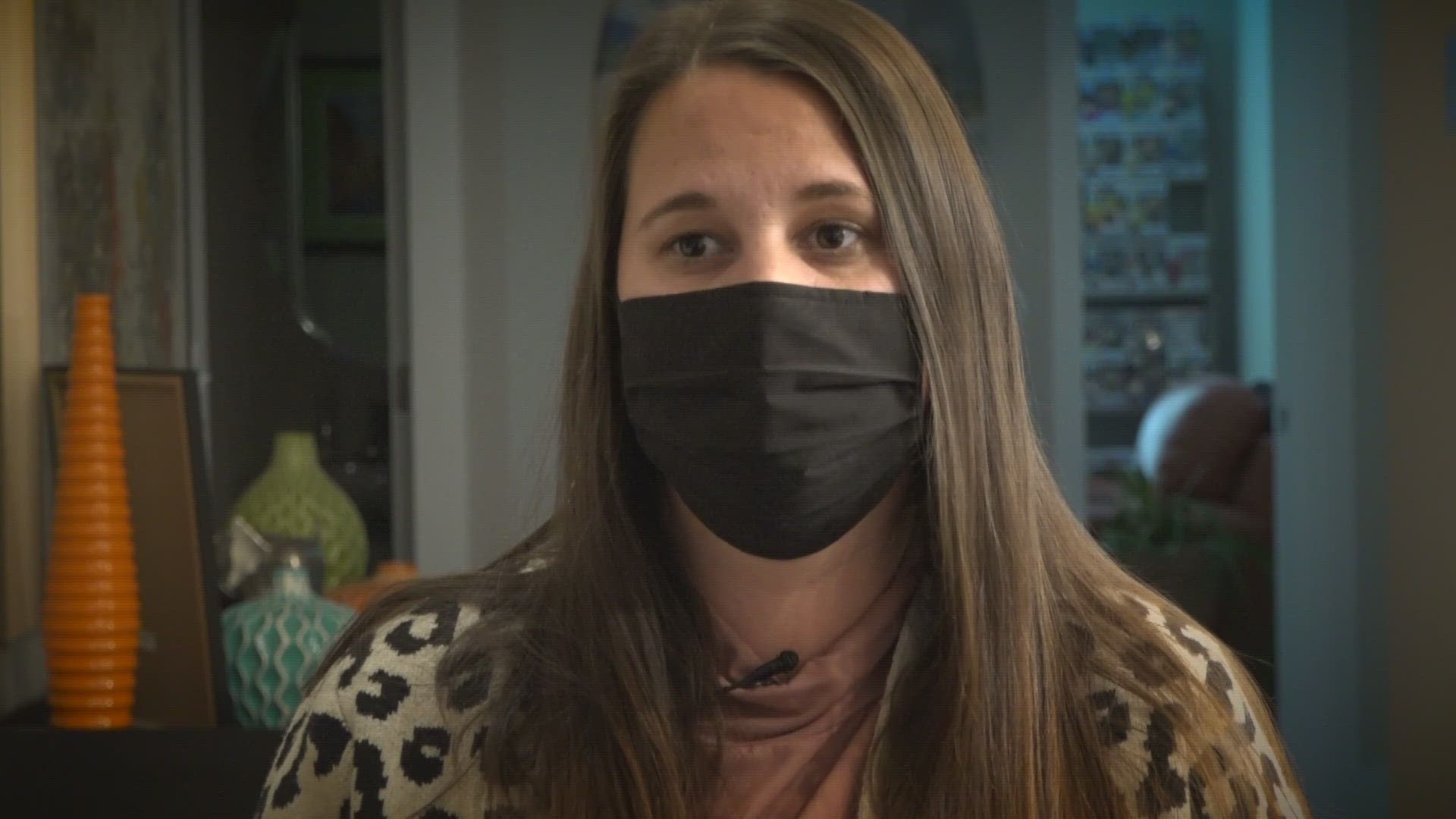GREENSBORO, N.C. — Courtney Jones never expected to be the victim of a banking scam. This type of scam is not uncommon, and thousands of people have been targeted.
In the case of Jones, she received a text message from what she thought was her bank. A short time later, she received a call from what appeared to be the fraud department at her bank.
Jones was told the bank identified a fraud situation, but to prevent the money from being stolen, she needed to transfer the money to herself using Zelle.
It’s a bit unclear exactly what the scammers did, but somehow, they set up fake accounts that appear to be yours. When the money is transferred, it doesn't go to you.
Jones said the person talking to her was convincing and she thought they worked for the bank and were trying to help.
“They asked if I made a Zelle transaction of $3,500,” Jones said. “They told me not to worry (about it), we stopped your debit card and put a hold on that.”
Jones said she thought she was doing everything right - only to learn the person she thought was with the bank was stealing her money.
Jones would later become skeptical of the entire situation and called the bank. She tells WFMY News 2 that she has bounced around between the fraud department and the online banking department. The next day she went to the local branch and was told she had been scammed.
“The lady (from the bank) looked in my account, and the money was no longer there,” Jones said.
The scammer made off with around $3,500. Jones said she contacted the bank’s corporate office to see if it could refund the money. The bank later notified Jones and told her it would not reimburse her.
“I’m not the first person this has happened to, there are many cases across the country of people falling for this (scam),” Jones said.
Not sure what else she could do, Jones decided to contact us and started to investigate cases like this on her own. She discovered a similar case in another state and the bank refunded the money.
The story mentioned the Consumer Financial Protection Bureau and Regulation E. The organization recently passed the regulation as part of the Electronic Fund Transfer Act. It basically provides some protection in cases involving an electronic scam.
“This regulation states banks are responsible to make customers whole,” Jones said.
We reached out to the CFPB and explained this situation. A representative with the agency sent us an email that explains what they do and what steps consumers can take in these instances. They also provided us with a statement that reads in part: “When a consumer provides notice to a financial institution that money was stolen from the consumer’s account, the burden is on the institution to show that the transfer of funds out of the consumer’s account was authorized by the consumer.”
After speaking with the CFPB representative, we contacted the bank and sent them a copy of Regulation E along with the information the CFPB provided us with.
The bank agreed it would take a closer look at this case and follow up after it had completed its investigation.
About six weeks passed when we received a call from Jones. The $3,500 was put back into her account.
“I want to say thank you for your hard work and dedication, I would not have recouped this money without you,” Jones said.
If you believe you have been the victim of a scam report the scam to the Federal Trade Commission or the Attorney General's Office.
MORE WAYS TO GET WFMY NEWS 2
Subscribe to our daily newsletter Let’s Get 2 It!
Download the WFMY News 2 APP from your Apple or Google Play store.
ADD THE WFMY+ APP TO YOUR STREAMING DEVICE
ROKU: Add the channel from the ROKU store or by searching for WFMY.
Amazon Fire TV: Search for WFMY to find the free app to add to your account. You can also add the app directly to your Fire TV through your Amazon account.

